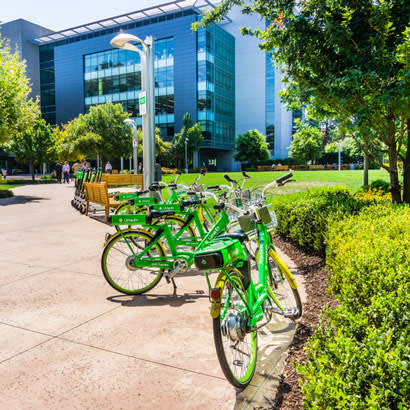
Has your city been invaded yet? No, we aren’t talking about locusts, we aren’t talking about aliens, we are talking about people zooming around town on small, motor-assisted, dockless scooters and bikes. Companies such as Bird, Lime and Skip have made a play to enter many metropolitan areas and may be headed to your city next. This issue has garnered attention from professionals on the NRPA Connect message board in the past, and is a topic that isn’t going away.
In Minneapolis earlier this summer, there was a battle brewing over the sudden appearance of Bird branded scooters. The city was unprepared and caught off guard by the arrival of these scooters and didn’t have rules in place for their use. The city acted — after the fact — to remove them until rules could be implemented. Now that we know that dockless scooters and bikes are becoming more common in cities, it’s time to create rules and policies surrounding their use.
Transportation issues are likely handled by your city department of transportation, so you might be asking how this impacts parks and your job as a park professional. With these scooters and bikes being dockless, citizens and visitors can leave them just about anywhere within a city. On park trails, leaning against park benches, on sports fields and on sidewalks are all places where these scooters and bikes could pose a potential danger to park guests and a real inconvenience for maintenance and grounds crews.
A constant issue — and one that elicits strong reactions from both sides — is that of allowing motorized bicycles on paths designed and intended for non-motorized vehicles. Bikes that can potentially go faster than normal pedal-powered rides sharing the road with families out for a leisurely stroll or ride can cause conflict. Those who support their use say that getting people outdoors and on bikes is a positive thing, even if their pedaling is assisted by an internal motor. While I don’t have the answer, it’s important to look at this issue as a city and consider the opinions of both supporters and detractors.
One player in the space has moved to make it easier for cities to manage their small black and white motor scooters. Bird has launched a GovTech platform that allows cities to create geofences around areas to limit parking. Cities may consider limiting parking of scooters within public parks, confining the parking to the streets and sidewalks that surround the park. Cities may also want to consider limiting the ability of the riders to end a scooter ride along the banks of bodies of water. On more than one occasion the parked scooters have gone for an unfortunate swim at the hands of vandals.
I believe that having more options for getting around a city is positive, and I’m sure you mostly agree. I would advocate that your agency considers the implications of this new technology and how to create rules before implementation. Cities were caught off-guard by rideshare technology (Uber, Lyft), but cities can prevent that from happening with motorized, dockless transportation by considering rules and regulations before they invade your city. The upcoming NRPA Annual Conference would also be a good time to chat with your fellow park and rec professionals about the challenges and solutions they are facing with the dockless revolution.
Kyle Simpson is NRPA's Senior Government Affairs Manager.

